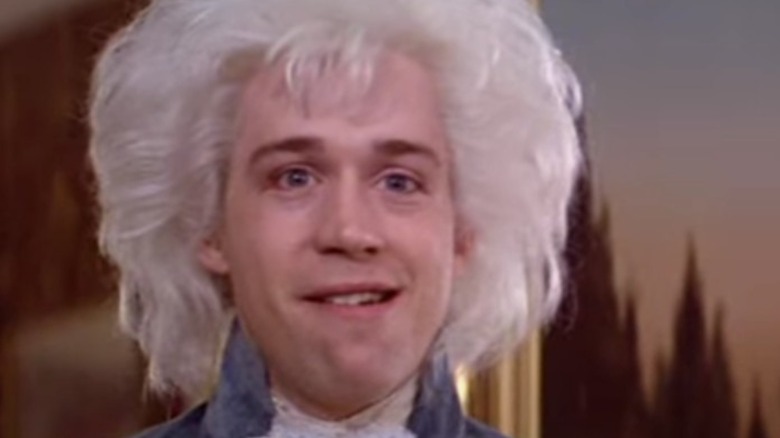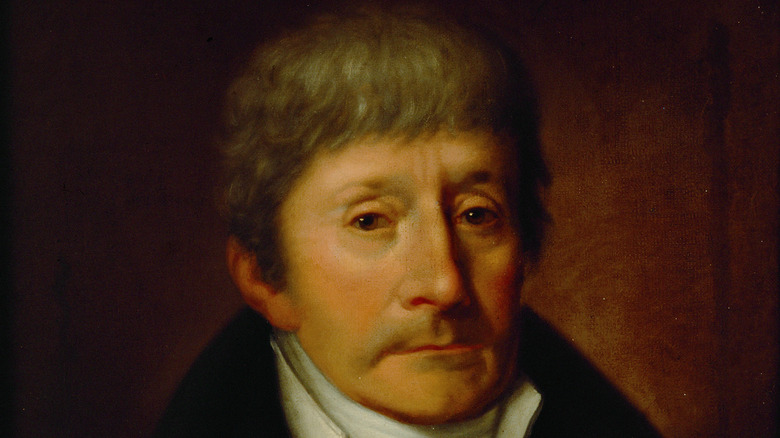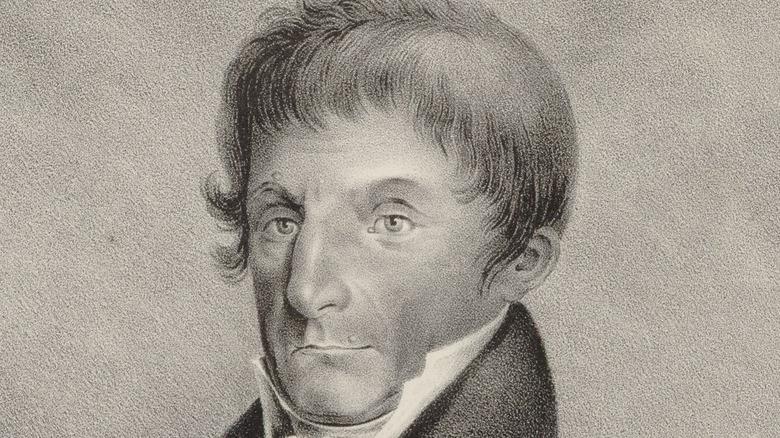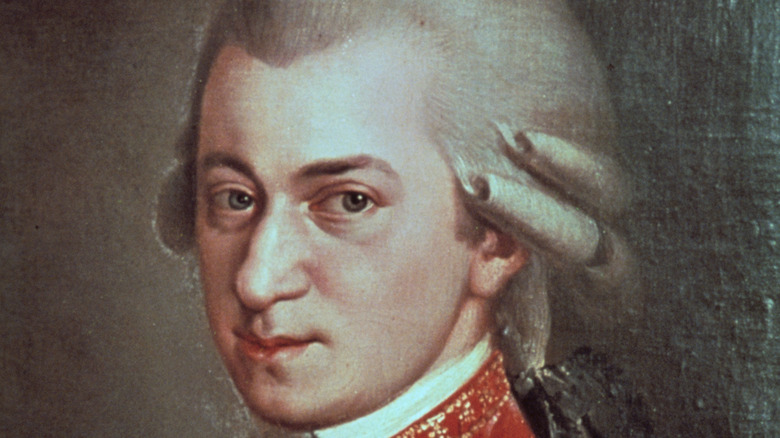How Amadeus Ignored Mozart's True Story
Miloš Forman's 1984 film "Amadeus" purports to explore the relationship between classical music composer Wolfgang Amadeus Mozart (Thomas Hulce) and his colleague, Italian composer Antonio Salieri (F. Murray Abraham). Specifically, the film explores a supposed rivalry between the two men, a competition so intense that Salieri intended to murder his adversary.
The film, based on the successful stage play (per the Internet Broadway Database) by Peter Shaffer (who also wrote the screenplay), was a box office and critical smash, netting Hulce and Abraham Academy Award nominations, and giving Abraham his first Oscar, for Best Actor; the film took Best Picture as well (via Britannica). Decades later, the movie is still considered one of the high-water marks of 1980s cinema. Taste of Cinema critic David Brimer considers it the best film of that decade.
Lurking behind the movie's popularity and accolades, however, is the fact that the purported historical biopic is not accurate, neither as history nor as biography. Only the barest frame of the story is true, while the rest of the narrative was invented wholly in the screenwriter's mind.
Antonio Salieri's rivalry with Mozart was friendly and professional
The film portrays Mozart's and Salieri's rivalry as so intense that the latter is driven almost to murder by his jealousy. In reality, however, Mozart and Salieri were rivals, in the sense that each spurred the other on toward greatness. As The Guardian noted, while there may have been "office politics" resulting in minor and infrequent beefs between the two men, they affectionately respected each other. What's more, after Mozart died, his widow, Constanze, hired Salieri (pictured above) to give music lessons to their son, according to The New York Times.
However, after Mozart's death, Salieri might have changed his tune about his former rival, posits Erica Jeal, writing in The Guardian. She noted that after Mozart died, Salieri effectively went into early retirement, where he remained for the final two decades of his life. He wrote no music during that time, instead focusing on refining his earlier works. Meanwhile, Mozart only got bigger after his death, and his music continued to be performed, while Salieri's music was largely lost to history. Whether or not Mozart's posthumous popularity drove Salieri to quit composing, or whether his retirement following Mozart's death was just a coincidence, is unclear.
The movie got other aspects of Salieri wrong, too
Besides playing up the rivalry between Mozart and Salieri (above) to its murderous extreme, "Amadeus" also took significant other liberties with Salieri as well. For example, the film portrays him as a pious and dour man of religion who had offered his celibacy to God in exchange for never-realized musical genius, per The Guardian. In fact, he was married and fathered eight children. Further, Salieri didn't take his own life by slashing his neck while in a psychiatric hospital, as suggested in the movie. He did suffer a knife wound to his neck, and he was hospitalized at the time, and rumor has it that he confessed to murdering Mozart during his brief period of madness. However, that rumor was reportedly spread by Ludwig van Beethoven's nephew, Karl, and it is fully unsubstantiated.
Whether in spite of or because of his religious piety, according to The New York Times, Salieri was also a kindhearted and charitable man whose only vice was sweets. When he had extra money, he'd give what he could to struggling musicians, and even left money to a Viennese musical society.
The film's portrayal of Mozart, however...
Actor Thomas Hulce was nominated for an Academy Award for Best Actor for his portrayal of Wolfgang Amadeus Mozart in the film "Amadeus," per Britannica. Hulce portrayed Mozart as an obnoxious, juvenile drunk fond of gross-out humor inappropriate for a dignified European court. Parts of that depiction were actually true.
As Screen Rant noted, the real-life Mozart did indeed have a fondness for ribald humor and a well-executed fart joke. At least one of his compositions has a title so vulgar that, translated into English, it would be more appropriate for a porn video than a classical composition. Further, his surviving letters reveal his fondness for scatalogical humor, though they also include clever turns of phrase. However, whether or not he was quite so crass in public is lost to history, according to the Handel & Hayden Society.
The movie misses the mark on some other details on Mozart's life. He did die penniless, but that was because he was bad with money. He was buried in a pauper's grave, but that was in keeping with the Viennese custom of the time. And though he was far from a teetotaler, he wasn't the stumbling drunk portrayed in the film, according to Screen Rant.



